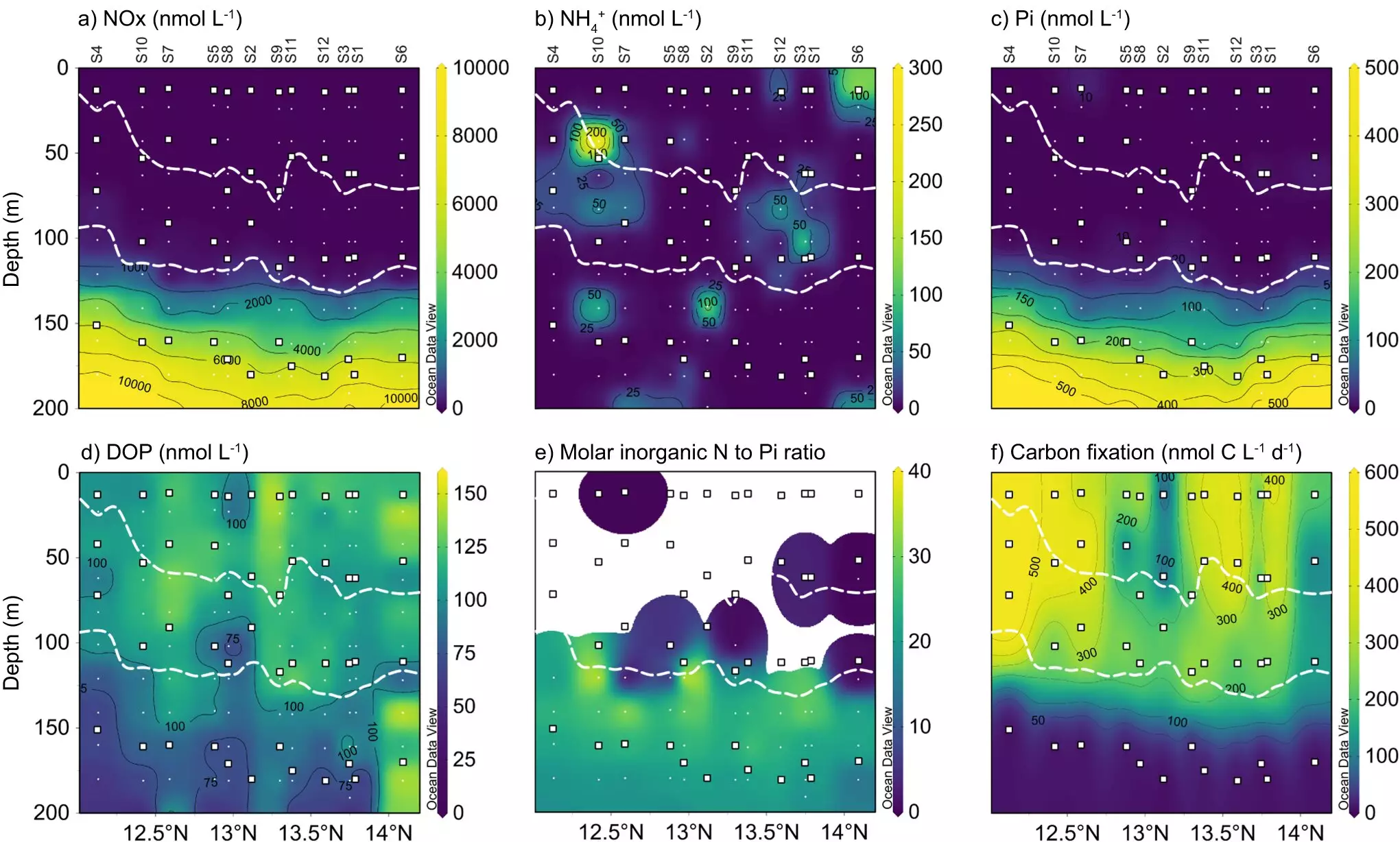Researchers from the Max Planck Institute for Marine Microbiology in Bremen have made a groundbreaking discovery in the production of methane by bacteria. Methane is a potent greenhouse gas that contributes significantly to global warming. In the past, it was believed that methane was mostly produced by microorganisms in oxygen-deprived environments. However, researchers have now found that certain bacteria are capable of producing methane aerobically, i.e., in the presence of oxygen.
These bacteria produce methane as a byproduct during their acquisition of phosphorus, a crucial nutrient that is scarce in the sea. By using special enzymes, these bacteria can release phosphorus from organic compounds. The researchers have focused their study on investigating bacterial methane production in the surface water off the coast of Barbados in the Western Tropical North Atlantic.
Contrary to previous beliefs, the researchers found that methane production was highest near the water surface, where oxygen is abundant. However, they were also able to detect methane at depths of up to 200 meters, despite there being enough phosphate available for the bacteria, meaning they wouldn’t need to use methylphosphonate to acquire phosphorus.
The types of bacteria responsible for methane production also varied with depth. The cyanobacterium Trichodesmium, a known marine primary producer, dominated methane production at the surface. In the deeper waters, Alphaproteobacteria were found to be predominant. These findings challenge the previous understanding of methane production in oxygenated waters and highlight the need for further research in this area.
The researchers also discovered that by utilizing methylphosphonate as an alternative phosphorus source, the bacteria are able to fix more carbon in the surface water compared to relying solely on phosphate. This allows them to remove significant amounts of carbon dioxide from the atmosphere, underscoring the ecological importance of phosphonates in the carbon cycle of nutrient-poor ocean regions.
However, while these microorganisms capture carbon dioxide, they also release methane, which is a much more potent greenhouse gas. This raises concerns about the overall impact of aerobic methane production on greenhouse gas emissions from the sea.
The study’s findings suggest that methane production in oxygen-saturated water columns, once considered impossible, may be more prevalent than previously thought. Since the bacteria responsible for methane production are present in all oceans, the methane produced from methylphosphonate likely contributes significantly to the release of greenhouse gases from phosphate-poor environments.
It remains unclear how much methane is released into the environment as it depends on the ratio of production and oxidation. Furthermore, the exact sources and sinks of methane in the ocean are still not fully understood. As climate change continues, it is anticipated that aerobic methane production will increase due to the scarcity of phosphate caused by ocean warming and stronger stratification of the water column.
To predict and mitigate future changes in the release of climate-relevant gases, it is crucial to further research the processes involved and the determining factors. By gaining a deeper understanding of how aerobic methane production occurs, scientists have a better chance of predicting and addressing its negative effects on global warming. Continued research in this field is vital for effective climate change mitigation strategies.


Leave a Reply